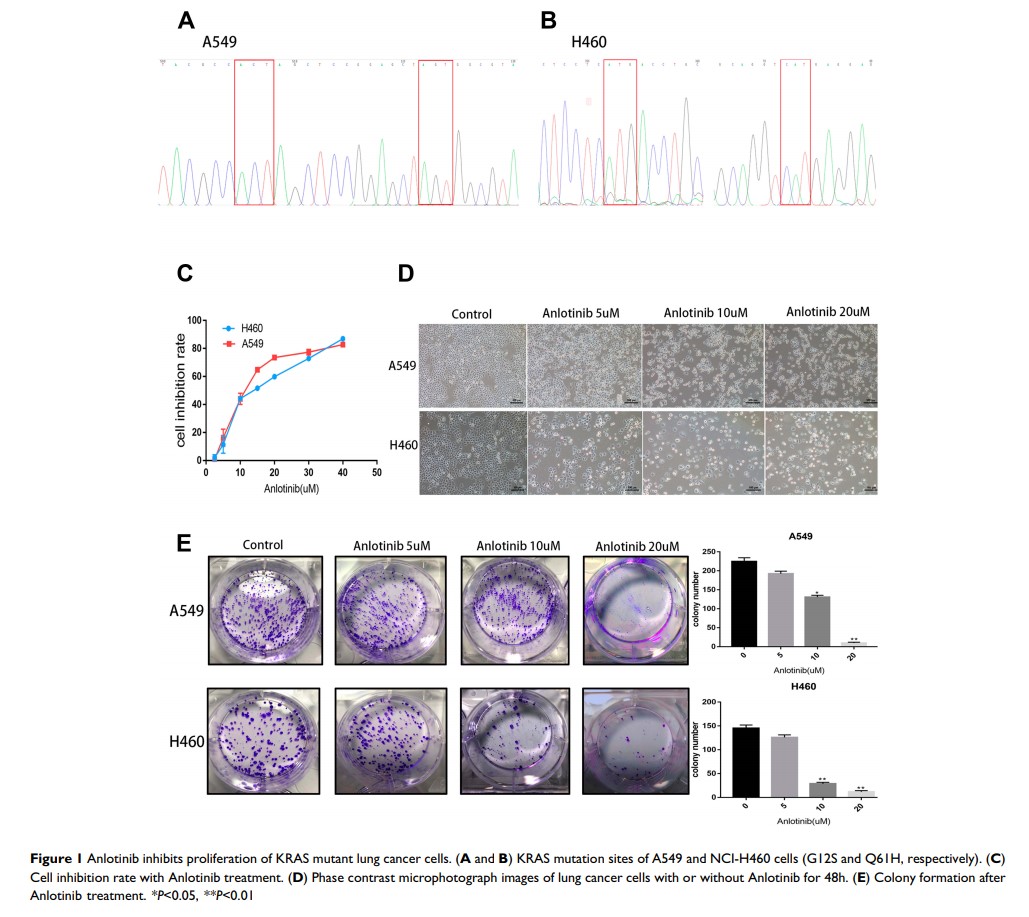9 0 8 0 2
论文已发表
注册即可获取德孚的最新动态
IF 收录期刊
- 2.6 Breast Cancer (Dove Med Press)
- 3.9 Clin Epidemiol
- 3.3 Cancer Manag Res
- 3.9 Infect Drug Resist
- 3.6 Clin Interv Aging
- 4.8 Drug Des Dev Ther
- 2.8 Int J Chronic Obstr
- 8.0 Int J Nanomed
- 2.3 Int J Women's Health
- 3.2 Neuropsych Dis Treat
- 4.0 OncoTargets Ther
- 2.2 Patient Prefer Adher
- 2.8 Ther Clin Risk Manag
- 2.7 J Pain Res
- 3.3 Diabet Metab Synd Ob
- 4.3 Psychol Res Behav Ma
- 3.4 Nat Sci Sleep
- 1.9 Pharmgenomics Pers Med
- 3.5 Risk Manag Healthc Policy
- 4.5 J Inflamm Res
- 2.3 Int J Gen Med
- 4.1 J Hepatocell Carcinoma
- 3.2 J Asthma Allergy
- 2.3 Clin Cosmet Investig Dermatol
- 3.3 J Multidiscip Healthc

安罗替尼通过抑制 MEK/ERK 信号通路对 KRAS 突变的肺癌细胞发挥抗癌作用
Authors Hu H, Liu Y, Tan S, Xie XX, He J, Luo F, Wang L
Received 24 December 2019
Accepted for publication 1 May 2020
Published 19 May 2020 Volume 2020:12 Pages 3579—3587
DOI https://doi.org/10.2147/CMAR.S243660
Checked for plagiarism Yes
Review by Single-blind
Peer reviewer comments 2
Editor who approved publication: Dr Yong Teng
Background: With a high frequency of 30%, KRAS mutations in patients with non-small cell lung cancer (NSCLC) often lead to their poor response to most anti-cancer therapies. As a multi-target tyrosine kinase inhibitor, Anlotinib shows clinical efficacy against several types of cancer. However, its effects on KRAS mutant NSCLC and the underlying molecular mechanisms remain unclear.
Materials and Methods: Cell counting Kit-8 assay, colony formation assay, flow cytometry analysis, wound healing scratch assay, Transwell assay and xenograft mouse model were used to evaluate the anti-cancer effects of Anlotinib. The potential molecular mechanisms were determined by immunohistochemistry (IHC) and Western blotting.
Results: Anlotinib inhibited proliferation of KRAS mutant lung cancer cells and induced apoptosis in vitro. In addition, the migration and invasion abilities of these cells were also decreased after treatment with Anlotinib. It significantly suppressed tumor growth in vivo and prolonged the survival of the xenograft-bearing mice, which correlated to lower expression levels of Ki67 in the tumor tissues. Mechanistically, Anlotinib downregulated MEK and ERK as well as their phosphorylated forms in the KRAS mutant lung cancer cells.
Conclusion: Anlotinib inhibits the growth of KRAS mutant lung cancer cells partly via the suppression of the MEK/ERK pathway. Our findings provide novel insights into treating recalcitrant KRAS mutated NSCLC.
Keywords: Anlotinib, KRAS-mutated, lung cancer, signal pathways
